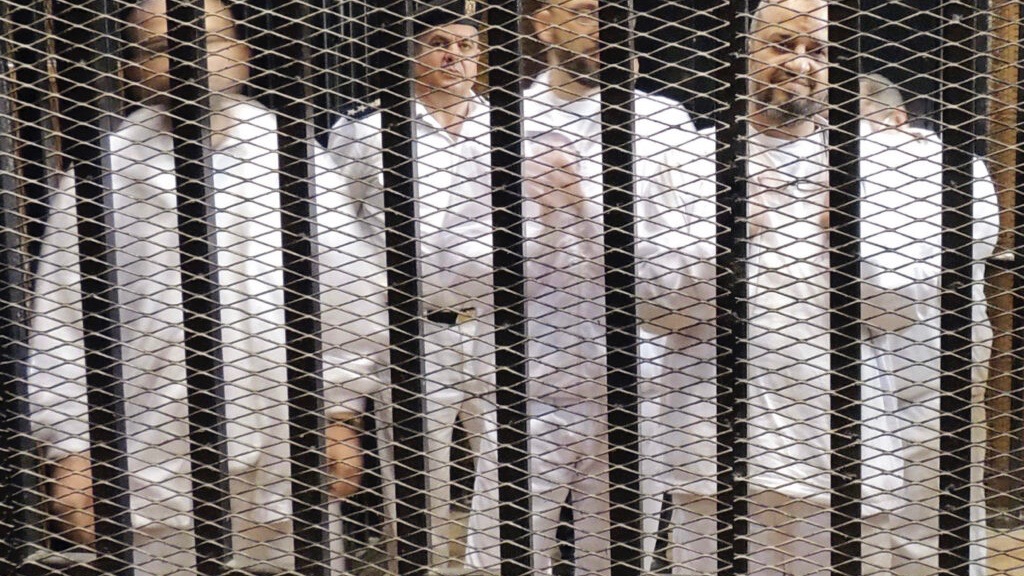Amid the increasing repression of political activists in Egypt, several human rights groups have renewed their campaign to press the government to stop the execution of 26 members of the Muslim Brotherhood. Earlier this month, the African Commission of Human and People’s Rights wrote to president Abdel Fattah al-Sisi asking him to postpone the execution, Middle East Eye reported on Wednesday, November 10.
Egypt’s highest court of appeal, the Court of Cassation, has confirmed the death penalty of 26 men in cases related to violence during protests at the Rabaa al-Adaweya square in Cairo in August 2013.
The Egyptian security forces have arrested more than 700 people alleging their involvement in violence and attempts to “topple the government” due to their participation in the protests eight years ago.
The protests were called by the Muslim Brotherhood and Freedom and Justice party to oppose the military coup led by Sisi against the democratically elected government of Mohamed Morsi.
The Muslim Bortherhood-affiliated Freedom and Justice Party had won the 2012 elections that were held after mass popular protests toppled diictator Hosni Mubarak in 2011. The Morsi-led government was soon accused by the liberal sections of Egyptian society of trying to implement obscurantist policies. During the protests against his government, the Egyptian military took over control and put Morsi in jail where he died in 2019.
Political persecution
In 2018, after a year-long trial marred with allegations of irregularities, a lower court convicted 75 people to death, gave life sentences to 47, and various jail sentences to hundreds others. Though some of the appeals are still pending before the Court of Cassation, it has so far confirmed the death sentence of 26 people. Most of the people sentenced to death are members of the Muslims Brotherhood, which has been banned and termed a “terrorist organization” by the coup regime led by Sisi.
Eyewitnesses and human rights groups have refuted the claims of violence committed by the protesters. They have instead blamed the Egyptian security forces for indulging in unprovoked and one-sided violence against the protesters, in which more than a thousand people were killed. Muslim Brotherhood and several human rights groups in the country have called the trial and sentencing of its members “unjust” political persecution and asked for international intervention.
Following the confirmation of the death sentences, some members of the Muslim Brotherhood filed a complaint with the African Commission on Human and People’s Rights, which has asked the Sisi administration to halt the execution until the investigation is completed. Egypt is a signatory of the African Charter on Human and Peoples Rights.
International human rights groups, such as Amnesty and Human Rights Watch, along with Egyptian organizations have accused the Sisi administration of carrying out a mass political persecution campaign against all forms of opposition to his regime. Some have even called for the suspension of international aid and demanded sanctions against the regime.
Activities of most of the opposition groups and individual activists in the country are banned. Since 2013, thousands of activists belonging to opposition parties or civil society groups have been arrested or killed by the security forces. The Egyptian government, using its control over the courts, has carried out scores of executions of political prisoners. Amnesty International called Egypt the third worst country in the world in terms of numbers of executions last year.





